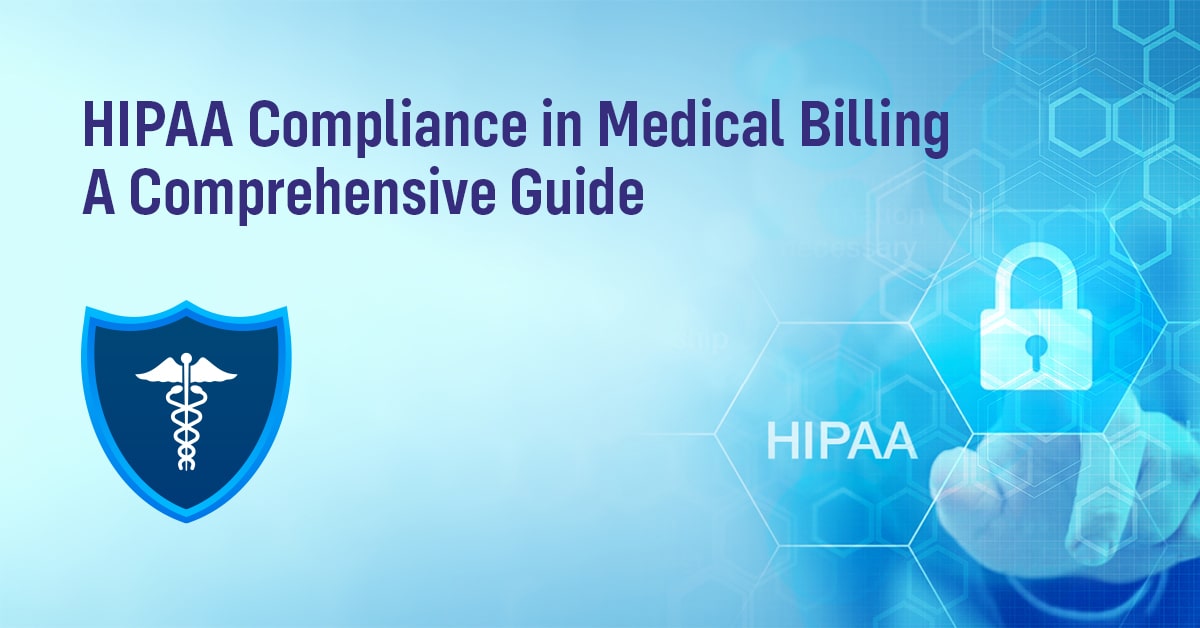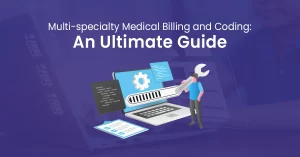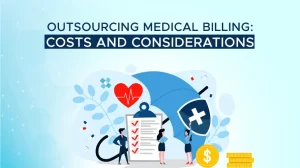Healthcare providers must ensure the security and privacy of patient information to avoid costly penalties, legal consequences, and damaged reputations. The Health Insurance Portability and Accountability Act (HIPAA) was enacted in 1996 to protect the confidentiality of medical records and personal health information (PHI) and regulate electronic transmission. HIPAA compliance is crucial for healthcare providers who handle patient data, especially in medical billing. This comprehensive guide aims to provide doctors, hospitals, and healthcare providers with the knowledge and resources needed to comply with HIPAA regulations in medical billing and protect patients’ privacy and security.
What is HIPAA and Why is It Important?
HIPAA compliance in medical billing refers to safeguarding PHI during the billing process. It includes using, disclosing, and storing PHI by healthcare providers, billing companies, and insurance companies. HIPAA regulations require healthcare providers to implement administrative, physical, and technical safeguards to ensure PHI’s confidentiality, integrity, and availability. HIPAA compliance also involves training employees on security policies and procedures, performing risk assessments, and developing contingency plans in case of data breaches.
Inhouse Medical Billing and HIPAA Compliance
Large healthcare practices use in-house medical billing. The teams are employees of the healthcare organization (the Covered Entity) rather than a separate entity under HIPAA because they are directly under its authority. As a result, Business Associates and Business Associate Agreements are not subject to any regulations.
The medical billing process is sped up by in-house medical billing, which gives team members immediate access to doctors to clarify diagnoses and treatments. Implementing a secure communication system and compliance with the Minimum Necessary Standard are still required despite billing and physician contacts taking.
Outsourced Medical Billing and HIPAA Compliance
To save money on the cost of hiring an internal workforce, Small practices and doctor’s offices frequently outsource the medical billing process (beyond the patient registration stage) to a third party. In many instances, the outsourced third party will produce a claim on behalf of a Covered Entity, ensure it complies with payer regulations, and then submit, amend, and review it as appropriate.
A Covered Entity may occasionally offer a medical billing service on behalf of another Covered Entity (for example, when a healthcare clearinghouse provides a service on behalf of a physician), even though all outsourced medical billing services are classified as Business Associates under HIPAA. A Business Associate Agreement must be in place before PHI is exposed in these circumstances because the Covered Entity providing the service is still regarded as a Business Associate.
HIPAA Privacy Rule
The HIPAA Privacy Rule is essential to the Health Insurance Portability and Accountability Act (HIPAA), which regulates how healthcare providers handle and disclose Protected Health Information (PHI). This rule restricts access to medical records and grants patients the right to view and control their medical information. Additionally, healthcare providers must obtain written consent from patients before sharing their PHI with third parties, such as insurance companies or other healthcare professionals.
The primary goal of the HIPAA Privacy Rule is to safeguard the confidentiality and privacy of patient’s medical records and personal health information. To achieve this, healthcare providers must implement administrative, physical, and technical measures that ensure PHI is secure and accessible only to authorized individuals. Non-compliance with HIPAA can lead to severe consequences, including financial penalties, legal repercussions, and damage to the provider’s reputation.
For example, in 2018, the University of Texas MD Anderson Cancer Center faced a $4.3 million penalty for HIPAA violations relating to the HIPAA Privacy Rule. The center was found to have exposed patients’ PHI to unauthorized individuals and failed to establish appropriate security measures to protect the information.
HIPAA Security Rule
The HIPAA Security Rule outlines the administrative, physical, and technical safeguards healthcare providers must implement to protect PHI. These measures include access controls, data encryption, disaster recovery plans, and employee training on security policies and procedures. The Security Rule also mandates that healthcare providers conduct risk assessments and devise contingency plans to address security incidents and data breaches.
For instance, a healthcare provider must ensure that only authorized individuals with a legitimate need can access PHI. They must also encrypt electronic PHI and create disaster recovery plans to guarantee the availability of PHI during security incidents or disasters.
Moreover, the HIPAA Security Rule obliges healthcare providers to perform regular risk assessments to pinpoint potential security threats and vulnerabilities. By doing so, providers can proactively detect and tackle security gaps before malicious actors exploit them.
HIPAA Privacy Rule vs. HIPAA Security Rule
| Aspect | Aspect HIPAA Privacy Rule | HIPAA Security Rule |
| Primary Focus | Protects the privacy of PHI by regulating its disclosure and use. | Ensures the security, confidentiality, and integrity of PHI, especially in electronic form. |
| Scope | Primarily concerns the use and disclosure of PHI, regardless of its format (oral, paper, or electronic). | Specifically focused on electronic PHI (ePHI). |
| Key Provisions | Restricts unauthorized access to medical records. Grants patients rights over their PHI. Requires patient consent for certain disclosures. | Implements access controls. Requires data encryption. Mandates disaster recovery plans. Obligates employee training on security. |
| Administrative Measures | Requires healthcare providers to implement policies and procedures to protect PHI’s privacy. | Obligates healthcare providers to maintain policies and procedures ensuring the security of ePHI |
| Physical Measures | Focused on the physical protections to safeguard PHI (e.g., locking file cabinets, secure areas). | Concentrates on protecting electronic systems, equipment, and the data they hold from threats. |
| Technical Measures | Not explicitly technical but more about the permissions and controls over the access and use of PHI | Deals with technology and the policy and procedures for its use that protect ePHI and control access to it. |
| Risk Management | Requires healthcare providers to safeguard PHI but doesn’t go into the depth of risk assessment. | Explicitly mandates regular risk assessments and contingency plans to address vulnerabilities and security incidents. |
| Consequences of Violation | Severe, including financial penalties, legal repercussions, and damage to reputation. | Similar to the Privacy Rule, with potential for hefty fines, legal consequences, and reputational harm. |
| Examples | University of Texas MD Anderson Cancer Center’s $4.3 million penalty due to exposing PHI. | Healthcare providers must encrypt ePHI and have disaster recovery plans in place. |
How Long Does Your HIPAA Compliance Last?
The HIPAA Security Rule specifies that any electronic record containing sensitive health information be safeguarded for at least six years.
This is overruled by laws in some states, which set varying time limits for protecting patient health information. Since different laws govern several organizations, the maintenance interval for specific healthcare facilities also differs.
For instance, the Centers for Medicare & Medicaid Services (CMS) mandates that hospitals maintain their data for at least six years. However, the requirement is extended to five years for critical access hospitals.
Businesses and partners must adhere to the information security and retention requirements set forth by the Occupational Safety and Health Administration (OSHA), which mandates that firms maintain medical records for 30 years.
HIPAA Compliance: Pro Tips for Healthcare Providers
Healthcare providers play a crucial role in maintaining the security and privacy of patient information, especially during medical billing processes. To protect health Information (PHI) during billing and achieve HIPAA compliance,it is essential for healthcare providers to:
- Develop policies specific to the provider’s needs.
- Incorporate administrative, physical, and technical safeguards.
- Conduct regular training sessions.
- Educate employees on identifying suspicious emails, securing devices, and reporting incidents.
- Employ encrypted email or secure file transfer protocols.
- Prevent unauthorized access during transmission.
- Allow access only to employees who require it for their roles.
- Utilize access controls and permission settings on electronic devices.
- Periodically reassess security policies and procedures.
- Conduct audits to spot gaps and areas for refinement.
- Identify potential threats from various sources: employees, contractors, vendors, hackers, etc.
- Address both internal and external vulnerabilities.
- Formulate a dedicated incident response team.
- Set clear incident response procedures and ensure they are up-to-date.
By adhering to these best practices, healthcare providers can ensure HIPAA compliance in their medical billing processes. Neglecting such regulations can lead to severe repercussions, from hefty fines to detrimental harm to the healthcare provider’s reputation.
Penalties for HIPAA Violations
HIPAA violations can result in costly penalties, legal fees, and reputational damage. The Department of Health and Human Services Office for Civil Rights (OCR) is responsible for enforcing HIPAA regulations and investigating complaints of non-compliance. The OCR can impose civil penalties ranging from $100 to $50,000 per violation, up to a maximum of $1.5 million per year for each type of violation. Criminal violations of HIPAA can result in fines of up to $250,000 and imprisonment for up to 10 years
Conclusion
HIPAA compliance is a critical aspect of medical billing for healthcare providers. Complying with HIPAA regulations ensures the security and privacy of patient information, protects healthcare providers from costly penalties and legal ramifications, and promotes patient trust and confidence. Healthcare providers should develop and implement security policies and procedures, train employees on security best practices, limit access to PHI, and regularly review and update security protocols to ensure compliance with HIPAA regulations. By following these best practices, healthcare providers can protect patient privacy and security and maintain their market presence and financial stability.




